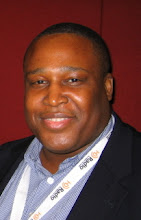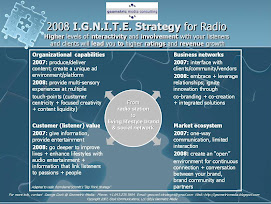Note: Today's guest blog is by Inside Music Media blogger and USC Music Industry Professor Jerry Del Colliano. In this post, Jerry highlights his future vision for successful radio PDs. Given the challenges facing radio today, now more than ever, it's important for market managers, general managers and operations managers to empower their programmers by giving them the resources, tools and support to create a more compelling product. With that in mind, here's Jerry...
I received a very inspirational email from a long time friend that has prompted me to put together the essential qualities of the next generation of program directors for terrestrial radio.
In doing so I am taking into account that radio today isn’t what it was 15 or 20 years ago and that, like it or not, radio is now consolidated. That many of the CEOs and COOs are clueless about content and even marketing, but still – I think I’ve got the PD of the future for you.
It’s also a lesson on how consolidators should handle a talented program director:
1. Give your PD enough rope to either do some great things or hang him or herself. That’s what a leader does. Budget cutting doesn’t make for great programming that you can monetize and throwing money at programmers is no more of a guarantee. Make the PD sell you the idea as if his or her neck is on the line and then say, “let’s do it”. Keep in mind that in the hey day of radio there really weren’t any budgets. You spent what you thought you had. Sales went and sold and hopefully somewhere expenses and income met without getting the owner too concerned. Somehow it worked better than what we’re seeing today.
2. Demand great ideas that you can use now. It ought to be obvious that programming stations that lose more talent every day and get cut to the bone in resources is not going to ever earn your station a return on investment. No investment is being made. Ask your programmers to present great, actionable ideas – this in contrast to edicts like – get by with no live jock from 10 am to 3 pm. A good PD can come up with great ways to make good radio for the available listening audience if you make them present ideas to you and then fund them.
3. Never disrespect the owner. A manager who has to cut expenses should warn his or her programmers not to get into it with the boss. There are plenty of forums in which to do that. Corporate should give true autonomy to the manager and any complaints go to him or her. George Johns of Fairbanks fame tells a story, “I remember once when Mr. Fairbanks (owner of Fairbanks Broadcasting), after learning that our station had a limited commercial load policy, which of course had been in place for several years, was outraged. He said, ‘you mean to say that we run fewer commercials than the law allows? And not only that but I have just found out we actually turn business away because of it? I want to know what idiot came up with that stupid policy?’”
That “stupid policy” was the work of brilliant programmer Jim Hilliard upon which these items are based.
There was always programming interference in radio – not just now in the wake of consolidation.
There were always budget constraints – as I said, often programmers didn’t actually know the budget.
True, most PDs only programmed one or two stations at the most and the pressure of being a public company was not felt on most radio programmers because there were a lot of Fairbanks-type owners out there.
And George Johns, the outstanding programmer from Canada, who partnered with Hilliard and shared some of this wisdom with me, had another excellent strategy that worked then and I believe would work now.
It was when Fairbanks took over KVIL and inherited the legendary Ron Chapman. But how to get free-wheeling Chapman to do Johns’ format?
Listen to him explain:
“What I had was a tape I had produced in Indianapolis. I had two of our best news guys from WIBC do me some "personality" type news. I had our afternoon jock, and production voice Chuck Riley, who later went on to become one of Americas biggest voice over guys, do some promos and ID's. I had some unbelievable great jingles already cut from Hugh Heller in LA, I had all of WIBC's best commercials and I also had a concept of music that had never been heard in America before. Now the final thing I had was some raw stereo tape of Ron Chapman”.
Johns put it all together laying Ron’s own voice in over the records with the production the way Johns would have it. After a nerve wracking 25 minutes without interruption and played back in perfect stereo in a production studio, Chapman said, “I can't very well say I don't know how to do this kind of radio, because there I was doing it.....Do you want to start it tomorrow?”The magic began immediately between between George and Ron, the station and Dallas.
So, the next suggestion:
4. Illustrate and demonstrate your ideas. This one is on today’s PDs. Too frequently they ask for money from serial budget cutters without going through the pain (and George Johns will confirm how hard it was to pull off the Chapman project) necessary to win support. Budget cutters above all need to hear it, see it and feel it. Hey, they still may be on a mission to cut at all costs, but where that’s not the case, demonstrating your programming ideas in a way they can actually hear is a necessary investment in winning support.
There is no doubt that it was easier to do good radio before consolidation. Bottom lines and good programming don’t always go well together.
While radio has changed, one thing hasn’t – the tried and true obligations and responsibilities that come with managing and programming a terrestrial radio station to today’s available audience.
Thanks for sharing your insights, Jerry. For more, check out Inside Music Media.
GloRilla DUI Arrest on Body Cam Video, Does Multiple Sobriety Tests
-
GloRilla got put through the gauntlet of a typical DUI arrest -- having to
do a bunch of field sobriety tests for the responding officer ... which we
can n...
1 hour ago



